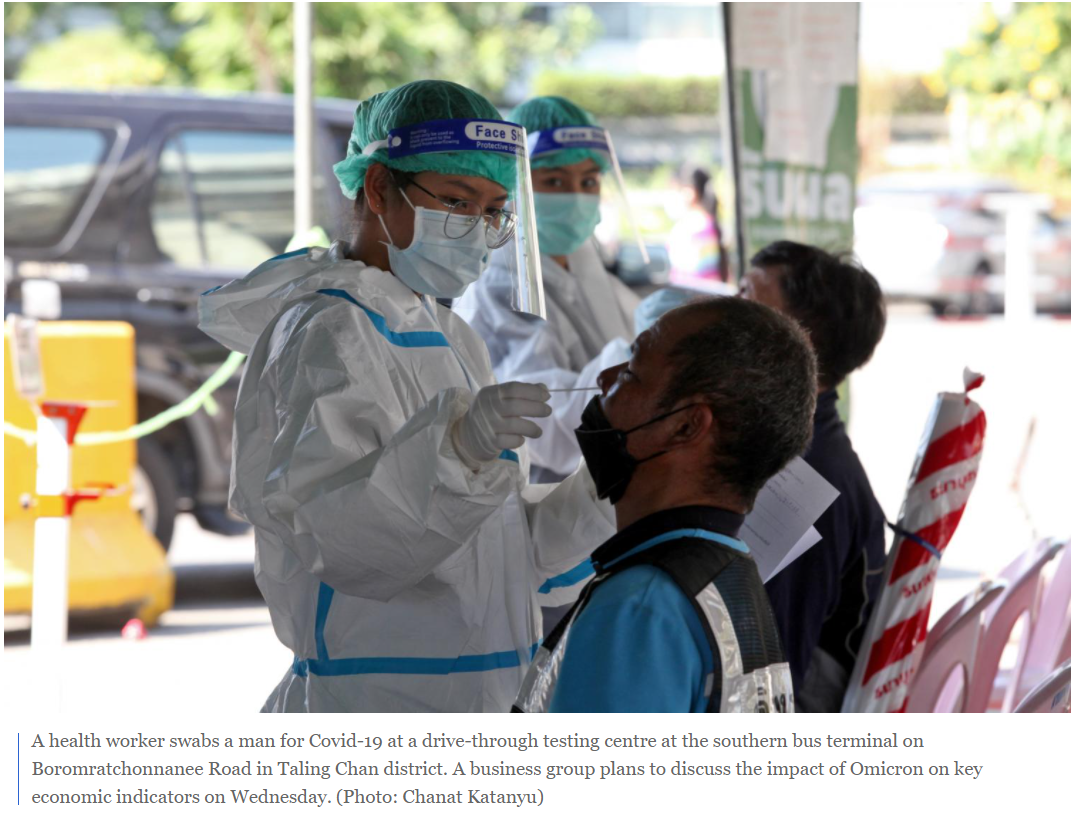Thailand: Growth prospects weak amid outbreak
The Joint Standing Committee on Commerce, Industry and Banking (JSCCIB) is likely to downgrade its economic growth forecast when it meets on Wednesday, despite an increase in the Thailand Industry Sentiment Index (TISI) for four consecutive months, says the Federation of Thai Industries.
The move results from growing concern over the rapid spread of the Covid-19 Omicron variant, with the impact looming over the Thai economy.
The JSCCIB will discuss the impact of Omicron on key economic indicators, including GDP, inflation and exports, said Supant Mongkolsuthree, chairman of the Federation of Thai Industries (FTI).
“It’s possible the JSCCIB will cut back the economic figures because Omicron has increased new daily infections more rapidly than expected,” he said.
The JSCCIB previously predicted the Thai economy would grow by 3-4.5% this year, with exports expanding by 3-5% and the inflation rate standing at 1.2-2%.
Last month, the TISI increased to 86.8 points, up from 85.4 points in November, according to the FTI. The increase reflected more business confidence among factory operators, following the easing of lockdown measures and the government’s continued attempts to boost the economy.
“These factors allowed more business activities in the manufacturing, trade and tourism sectors to resume,” said Mr Supant. “The government’s stimulus packages also encouraged people to spend more, especially during the New Year festival.”
He attributed the TISI growth to export expansion, which was fuelled by a global economic recovery and more purchase orders overseas in the lead-up to the New Year holidays.
Thai exporters also took advantage of the baht depreciation, which allowed them to better compete with other traders, said Mr Supant.
The December TISI was based on a survey of 1,325 entrepreneurs in 45 industries. Expensive energy prices were at the top of their concerns, receiving 67.3% of votes, followed by worries over the Covid-19 pandemic (62.2%) and the domestic economy (55.1%), according to the FTI.
The entrepreneurs are worried high fuel prices will affect the cost of operations. Combined with a scarcity of shipping containers and the prolonged shortage of semiconductors, this has imposed major hindrances on domestic and international trade.
The FTI also urged the government to better educate Thai entrepreneurs on the benefits, including zero tariffs, of the Regional Comprehensive Economic Partnership (RCEP) trade pact, which came into effect on Jan 1.
As the world’s biggest free trade deal, signed by 15 Asia-Pacific nations including Thailand, RCEP aims to remove tariffs on 91% of goods and standardise rules on investment, intellectual property and e-commerce, among other trade practices.
Source: https://www.bangkokpost.com/business/2246047/growth-prospects-weak-amid-outbreak


 English
English




